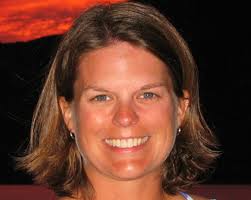How long will it take the sea state to decrease, based on the decrease in the strength of the wind?
The ocean surface waves experienced by Rich are created by the wind that he is skillfully harnessing to move in the direction he wants, but also by... read moreMath
I was a math major in college, and those skills were certainly necessary to study ocean physics as a graduate student. Studying plastic pollution in... read moreHas the chance of hitting an object of greater concern today, or has that risk essentially stayed the same over the last 15 or 20 years?
Modern technology assists seafarers in ways that were unimaginable just decades ago. Weather satellites and meteorological models provide excellent... read moreHow is the sea temperature warmer than the air temperature? And why is the sea so warm?
Hi Marshall and thanks for your great question! The temperature of the sea surface and the air directly above it can be different because of... read morePlastic in Our Oceans
Do you ever wonder what happens to a plastic drinking straw after you are finished using it and throw it away? Where is “away”? Where does it end... read moreQ&A: Prof. Kara Lavender Law
What are you working on now? …sitesALIVE! “In my lab at SEA we are doing detective work on the thousands of tiny plastic pieces that... read moreKara Lavender Law, PhD
Research Professor of Oceanography
Sea Education Association
“I like math. As a kid I enjoyed math problems, logic puzzles, and teaching my little brother how to count money. I was a math major at Duke University and, after suffering through some mind-bending theoretical math courses, I realized applied math is what I enjoy most. In my junior year at Duke I spent the spring semester at the Duke University Marine Laboratory, mainly to try something different in a different place. There I learned that I could use math to study ocean physics. And that I could do this while living at the beach, wearing flip-flops and shorts to work.
“I received my PhD in physical oceanography at Scripps Institution of Oceanography, where I used data collected by autonomous instruments to study deep ocean currents in the northern North Atlantic Ocean, and where I went to sea for the first time on an oceanographic research cruise. I joined Sea Education Association (SEA) in 2003 to do what I always envisioned since those days with my little brother and piles of pennies and dimes – to teach. I taught oceanography in our undergraduate SEA Semester off-campus study program (for those students that, like me, want to do something different, in a different place), which greatly expanded my oceanography knowledge beyond just ocean physics, and allowed me to supervise a wide variety of undergraduate research projects conducted far offshore onboard our tall ship sailing research vessels.
“In a serendipitous twist of fate around the time my husband and I decided to start a family, I became involved in a project to analyze SEA’s long-term data set on floating plastic debris that had been collected by SEA Semester students in support of their research projects since the 1980s. This research allowed me to continue doing interesting and important work without going to sea – something that was no longer possible with an infant in the family. In the nearly 10 years since I first started thinking about plastic pollution in the ocean, my research interests and scope of research within the field have expanded and grown and now include the sources, amount, distribution and fate of plastics in the marine environment. I work part-time from home during school hours, and I’m fortunate and grateful that I can do work that I love while also watching 7-year old Kelsie teach her 3-year old brother, Sam, his letter and numbers. Give it another couple of years and he will probably graduate to counting money too.”

